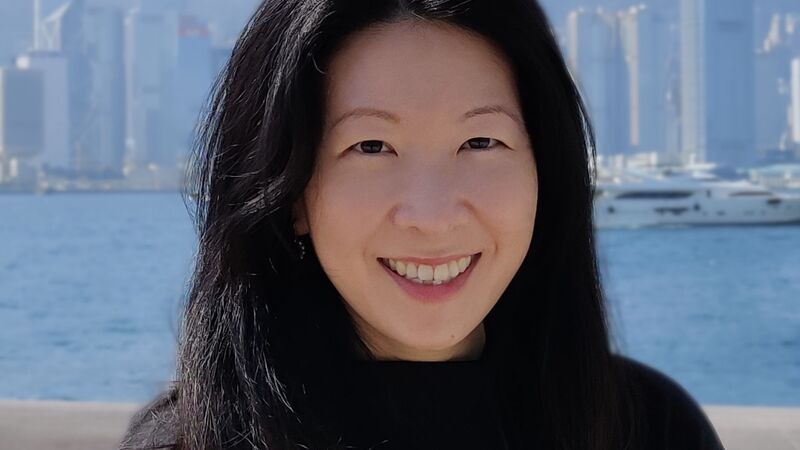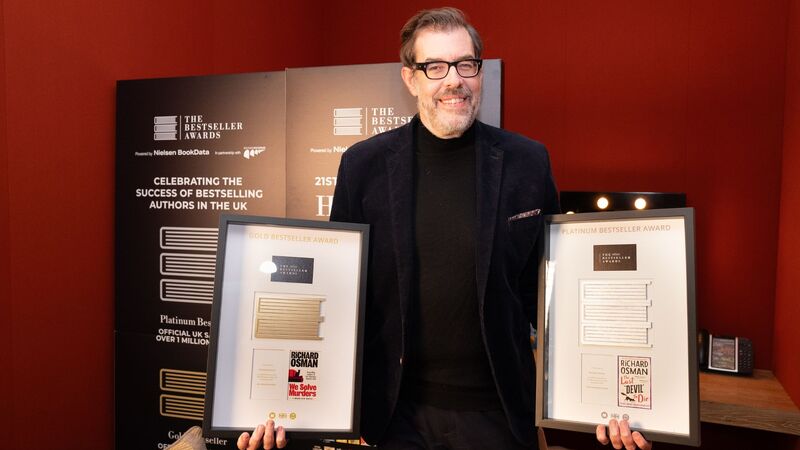You are viewing your 1 free article this month. Login to read more articles.
Eiderdown and Onwe launch—and look to rewrite monograph and SFF fields
Two new female-fronted presses are entering the independent publishing scene, with a mission to excavate hidden stories and shine a light on overlooked voices.
Art publisher Eiderdown Books was created when founder Harriet Judd noticed that there was a gap in the market for a press dedicated to producing books about female artists. She says: "I recall how, when I was younger and began leafing through art books, they were always all about the work of male artists. I’d like my own children to pick up an art book and it be just as likely to show art by a woman as by a man." Citing a report by artist Judy Chicago, which in 2012 revealed that only around 2.7% of art books published are about female artists, Judd adds: "Everyone in the arts needs to work to improve this inequality and I hope that launching this press will go some way to contributing to that sea-change."
Inspired by female-focused presses such as Virago, Persephone Books and Honno, as well as "exciting" new indies such as Knights Of, Eiderdown—named after a type of quilt—will launch in September with a series on five modern women artists. Each book will follow a British artist, or an artist who came to live in Britain, who was working in the first half of the 20th century. Judd says the press’ list will tell an "alternative ‘hidden’ narrative of the history of art".
She adds: "Right now, lots of publishers are becoming interested in ‘great’ or ‘rebel’ women from history, but too often these women are plucked out as the exception. Our list will show that there is a whole quilt or history of women artists that haven’t been written about yet. That’s what Eiderdown Books will do."
Onwe Press co-founders Reni K Amayo left and Mariam Jimoh
Marching Onwe
Similarly, new indie Onwe Press, co-founded by Mariam Jimoh and Reni Amayo, will be concentrating on the consistent and focused celebration and promotion of diverse voices, particularly those of black women writing in the sci-fi and fantasy genre. Jimoh says: "As black women [establishing a publisher], diversity is incredibly important to us and we felt that the publishing world could be doing a better job at making this a reality. We often find that diverse voices and even characters are missing from publishers’ rosters, and if a few are present, they aren’t always presented and promoted in a way that does the most justice for the writers or the communities they may be representing or writing for."
Fellow co-founder Reni Amayo adds: "There is finally growing interest in books by diverse authors, from an industry that has deliberately neglected them for far too long. We’re already hearing talks that this in itself could be something of a ‘trend’. We despise that concept, and we feel that in order to prevent the growth of diverse reads and authors from becoming a gimmick or a trend, it is important that our communities are heavily involved in bringing these stories to market."
The first title the press will be publishing is written by Amayo and entitled Daughters Of Nri. Publishing in August, it is an ancient African fantasy set after a gruesome war, and follows two twins who are separated at birth. Jimoh says: "At the heart of it, this book was made for black women and girls. Reni has created a world where they are the focal point and we can start to explore major aspects of their characters and the themes that surround them, without distractions from the heaviness of colonialism and oppression, which so often take the front seat in stories depicting the black female narrative."
Forging paths
With backgrounds in investment banking and experience working in start-ups, the pair identified the publishing industry as one "ripe for disruption" and, after poring over how-to guides, attending conferences and getting advice from industry experts, took the leap into independent publishing. However, it was not without its challenges.
"Early on, at least, it felt as though we were on the outside looking in at a very large, intimidating and mysterious industry," Jimoh says. "The biggest challenge that we had was wrapping our heads around the overall process of bringing a book to market. We needed full transparency so that we could pick the process apart, and decide what we needed to take and what we could do without. We attended a number of publishing events and conferences, and began to develop relationships
with industry insiders and leaders who were interested in what we were doing—and [who were] more than happy to help demystify the industry."
Judd, who has a background in museum publishing and is currently head of publishing for Pallant House Gallery in Chichester, says the resources provided by the Independent Publishers Guild were invaluable when starting Eiderdown. "The IPG’s The Insiders’ Guide to Independent Publishing was an indispensable starting point for us. It gave us the confidence to know that it was possible to strike out on our own, and that it was worthwhile taking the risk," says Judd. "I think groups like the IPG make a real difference in encouraging new independent presses to get up and running and become sustainable businesses.
"It seems I read an announcement about a new press setting up almost weekly on Twitter—and that’s a good thing."













